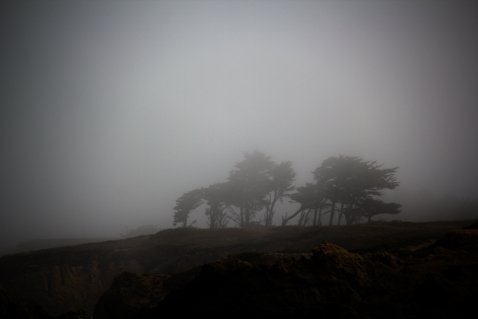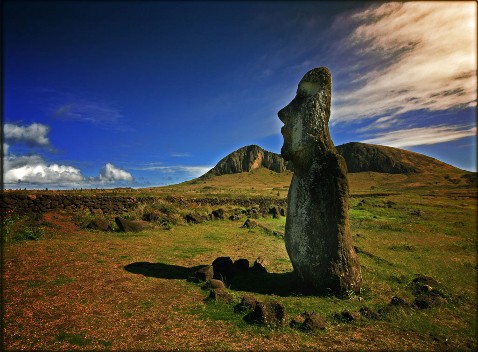a hard talk
/It is my distinct honor to welcome our newest regular contributor Brianna from Daily Amos. In 2010, her first son George was diagnosed with heart failure caused by supraventricular tachycardia at 24 weeks gestation. Over the next four weeks, the doctors tried to slow his heart rate down with medication. After stopping treatment, Brianna developed Mirror Syndrome and had to have an emergency c-section. George died shortly after birth. Brianna brings her wisdom and sharp insights to Glow in the Woods. We are grateful to have her. --Angie
When I was a kid one of my favorite books was Maurice Sendak’s Where the Wild Things Are. I often imagined myself as Max (and what child who has ever read that book has not done that same exact thing) throwing off the shackles of parental subjugation and escaping to a place where I was beholden only to myself. To this day I still love that book and get a thrill every time my nearly eighteen-month-old daughter asks me to read it to her and yells, “Max!” as we flip through the pages. There is something pure and honest in the way Sendak writes about childhood that is completely unique to him, which is probably why his books are beloved by so many people. Maurice Sendak died last year at age eighty-three having written and/or illustrated hundreds of pieces. Given the subject matter of what he wrote about I was surprised to discover that he never had any particular fondness for childhood and was more than a little preoccupied with his own death.
During one interview Sendak explains what he believes to be at the root of his morbid obsession. He tells a story of being a small child, about the age of four, and seeing on the front page of a newspaper a photograph of the remains of “The Lindbergh Baby,” the twenty-month-old child of the famous Charles and Anne Lindbergh who was killed during a kidnapping for ransom attempt. Sendak goes on to recount how profoundly the image terrified him and that his parents never really adequately addressed his distress. His parents, in fact, denied that such a photograph existed and insisted that little Maurice must have fabricated the entire thing. It wasn’t until many years later, long after Sendak’s obsession with the Lindbergh baby had matured and developed into the fixation he had about his own death, did he actually get confirmation that the photograph he claimed to see on the newspaper did actually exist.
I don't know why his parents chose to ignore their son’s obvious difficulty processing what he saw. Maybe they really believed their four-year-old son had lied about the photograph. Perhaps they thought convincing him that the entire incident never happened was the best course of action. I assume they were doing what most decent parents do when faced with uncomfortable situations like these; the best they can. But whatever the reason behind their decision, the result, at least in Maurice Sendak's mind, was that the little boy grew up to be fixated on his own death.
Watching Sendak recount what a traumatic experience he had with his first encounter with death made me think about the first time I learned about the concept myself. It was when one of our cats died and I must have been six at the time, maybe seven. She was a tortoiseshell beauty we called Puzzles, name owed to the interlocking swatches of orange and black fur on her back. She had been sick and my parents sent us down the street to play at a neighbor’s house while they took her to the vet. At the time I was not aware that they were taking her there to be euthanized. I assumed they were taking her to the doctor’s office to get medicine in the same way they did when my sister or I was sick. They returned later that afternoon, driving on our street past where we were playing outside. I knew something was wrong when I saw my dad in the passenger seat and that my mother was driving, an unlikely sight in our family. My sister, four years my senior, must have also known something was wrong as I don’t remember her saying anything to me the entire walk back to the house. When we arrived we found my dad, with a grim look on his face, along side my mother, waiting for us at the front door. “Puzzles was too sick to get better,” they told us, and that they “had to help her so that she would no longer be in pain.” They explained that they had her put to sleep, that she was not going to wake up, and what exactly all that meant. There might have been talk about heaven and what happens after death but I honestly don’t remember what was said mainly because I don’t think that part of conversation was as jarring as the idea of actual death.
They brought Puzzle’s body back from the vet’s office so that we could say goodbye by having a funeral for her. I realized that was why my father had been sitting as a passenger instead of his usual place in the captain’s seat: he had been holding on his lap the body of our much-loved cat, wrapped in plastic and placed in a cardboard box. Later that day my dad dug a hole in the corner of the backyard under a tree where we said our goodbyes. It was about as gentle an introductory experience as a child can have to death. I don’t look back on that memory with any fear or resentment but rather with an appreciation to my parents for making the hard choice to talk to us frankly about such a difficult subject.

In an ideal world the introduction I had to the concept of mortality and death is the one a child should get about such a profound subject. The introduction should not happen by being faced with a black and white photo of a stranger’s murdered child, or by the death of a sibling, or by watching mama come home from the hospital without baby brother or sister… Sadly though we don’t live in an ideal world. We live in a crazy, often beautiful but just as often fucked-up, world. Sometimes children do get murdered and sometimes babies do die. Some of us do not get to decide when and how our children learn about death…for some of us circumstance chooses for us.
Since George died Leif and I have had frequent conversations about how and when we are going to tell his sister about him and why he died. I guess in a way we are the luckier ones in the spectrum of unlucky baby loss. He was our first child and so we have the luxury of deciding when our daughter learns that she had a brother. Still I can imagine that no matter how or when we do it I will always wonder if we irrevocably damaged in some way her impressionable young mind. When she is fifteen and painting her nails black, listening to her generation’s equivalent of The Smiths, I’ll be certain that it is a result of my failure as her mother to adequately address her brother’s death. When she expresses any hint of anxiety while being pregnant with my grandchild, I will have no doubt that it is because she is convinced that her baby is going to die just like her mother’s did. I don’t think it is possible to escape those kinds of doubts or, if there is, I’m still trying to figure out a way to it.
The truth is that I am not afraid of telling her about death and mortality, per se. What does frighten me about explaining to her that her older brother died is the part where I have to expose her to ideas like sometimes bad things happen to good people and that there are not always good reasons for why terrible things happen in life. I worry about having to explain to her at some point that occasionally even our best efforts are not rewarded with happy endings. I don’t know how or when as a parent you tell your child these things as it seems to me it must at least partially steal away some innocence, and there is such precious little time they get to keep that as it is. What I do know for certain is that I will tell her about her brother George and that he died even though we wanted him so badly to stay. I will do my best to give her honest answers when she asks questions about him, as I know that she inevitably will. I will make sure she knows that no matter how scary this world is that I love her and her brother so very, very much. Maybe that is all she needs and the rest will work itself out.
What are your thoughts on discussing the topic of death with children? Have you had to explain the death of your baby to his or her sibling? How did you do it? If you haven’t yet had to address the topic, how will you or how would you do it? Or maybe you won’t address it. Tell me why. What do you wish your parents had told you about death?



